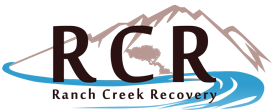Implementing cognitive behavioral therapy (CBT) into addiction treatment programs has been shown to be one of the most effective therapies available when it comes to getting positive results in a relatively short time.
- Why? Because CBT enables you to take your negative thoughts and restructure them, focusing on what you can control instead of dwelling on what you can’t.
This means you’re less affected by the external events impacting your life and able to move past the peripheral circumstances that had previously dominated your thinking.
CBT is also set apart from other types of therapy that are regularly incorporated into substance addiction treatment because CBT is intended to be short-term psychotherapy, used to analyze the relationship between your behaviors, thoughts and feelings.
In addition, CBT encourages you to work interactively with your treatment provider to collaboratively address past impulsive decision patterns while working to replace your addictive behaviors with a healthier, happier frame of mind.
Keep reading to learn more about CBT and how it can help as you work through addiction treatment.
What Is Cognitive Behavioral Therapy (CBT)?
Cognitive behavioral therapy (CBT) is a form of talk therapy used for a wide variety of addiction and mental health issues.
-
- The core concept of CBT is based on the notion that your thoughts and behaviors are interconnected, helping you understand and challenge those specific thoughts that negatively impact your behaviors.
- CBT typically takes place over a specific number of sessions and is a solution-focused type of treatment.
- Additionally, cognitive behavioral therapy is based on the idea that your individual thoughts are actually the cause of your feelings and reactions, not external events like people or situations you encounter.1
How Is CBT Different from Other Addiction Therapies?
The main difference between cognitive behavioral therapy and other addiction treatment options is that CBT is broader and tends to discuss a wide range of thoughts, habits, behaviors and patterns.
It helps you solve problems while building the necessary learning skills you need to:
- Identify negative behaviors
- Properly correct them
- Incorporate new and healthier coping skills
By contrast, DBT, or dialectical behavior therapy, is a specific form of cognitive behavioral therapy that emphasizes the psychosocial aspects of treatment and how you interact with others in different environments and relationships.
Someone dealing mostly with addiction triggers, like old friends or stress at work, may benefit from CBT. Whereas a person struggling with mental health problems alongside their addiction would benefit from DBT.
Another difference between CBT and DBT is the role the therapist takes in working with you throughout the therapeutic process. With CBT, the relationship is more instructional and direct, while in a DBT setting the therapist takes on the role of nurturer.
Another way to think of it can be:
- In DBT, the therapist works as an ally
- In CBT, the therapist is more of a teacher instructing a student(2,3)
How Is CBT Effective in Addiction Treatment?
Cognitive behavioral therapy encourages you to form clear expectations and perspectives around your daily thoughts. In other words, the primary goal of CBT is to help you recognize and change negative thought patterns that are impacting your sobriety.
During treatment sessions, you learn how to implement effective coping strategies that enable you to develop more positive thinking patterns over time.
Some of the more effective techniques incorporated during CBT sessions may include:
- Cognitive Restructuring
Cognitive restructuring teaches you how to react differently to stressful situations by offsetting negative thoughts and cognitive distortions, like catastrophizing or thinking the worst of every scenario.
Clinical therapists will typically incorporate self-talk strategies, teaching you how to identify illogical statements and replace them with positive perspectives.(4)
- Encouraging Positive Activities
One of the most effective ways to deal with your negative thoughts is to engage your mind in something more pleasant. This technique encourages you to create a weekly list of enjoyable activities to get a healthy break from the daily chores of your life.
The tasks are simple with a prime objective to induce positive emotions. The positivity can fight negative thoughts and help reduce your urge to relapse.(4)
- Setting Consistent Personal Goals
This technique focuses on you and your therapist coming up with specific outcomes that you would like to achieve related to drug abuse and any other problematic behavioral patterns.
It’s important that your goals are measurable and observable, as well as achievable. That’s because if the goals are set too high, you may become discouraged, which is why it’s important to set realistic goals at first.(4)
Cognitive Behavioral Therapy at Ranch Creek Recovery
At Ranch Creek Recovery, as you begin to address the negative thinking patterns that shape your actions, you’ll also learn how to change your behaviors, developing new skills to avoid substance use altogether.
Your treatment will focus on exploring your history to find out what has influenced your addiction in the past.
Our expert therapists are trained to listen for the maladaptive thoughts you express to help you challenge those concepts and replace them with healthier ideas.
Regardless of where you are in your recovery, it’s important to remember that when you begin making progress toward smaller goals, the overall objective of sustained sobriety begins to seem a bit more achievable each day — and we’ll be with you every step of the way.
Have questions about CBT? Learn more, or contact us to start your journey toward detox and recovery. We’re here to help in any way we can.
Resources:
1 American Psychological Association. What is Cognitive Behavioral Therapy? Accessed September 17, 2021. https://www.apa.org/ptsd-guideline/patients-and-families/cognitive-behavioral.
2 National Center for Biotechnology Information. Cognitive-Behavioral Therapy for Substance Use Disorders. Accessed September 17, 2021. https://www.ncbi.nlm.nih.gov/pmc/articles/PMC2897895/.
3 National Center for Biotechnology Information. Dialectical Behavior Therapy for Substance Abusers. Accessed September 17, 2021. https://www.ncbi.nlm.nih.gov/pmc/articles/PMC2797106/.
4 Mayo Clinic. Cognitive Behavioral Therapy. Accessed September 17, 2021. https://www.mayoclinic.org/tests-procedures/cognitive-behavioral-therapy/about/pac-20384610.










